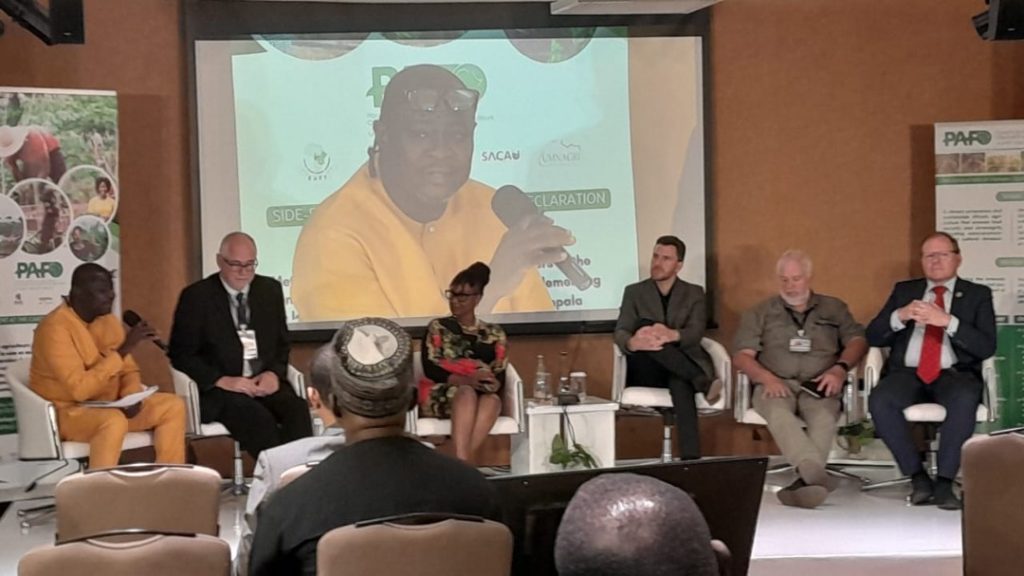Kampala, Uganda – January 10, 2025: During a high-profile side event organized by AUDA-NEPAD and the Forum for Agricultural Research in Africa (FARA) at the extraordinary presidential summit for CAADP-3.0, experts underscored the critical role of the private sector in achieving the aspirations of the Soil Initiative for Africa (SIA) and the Africa Fertilizer and Soil Health Action Plan (AFSH-AP).
Prof. Oluwole Fatunbi, Acting Director for Research and Innovation, delivered a poignant message, highlighting that without meaningful engagement with the private sector, these initiatives risk becoming unattainable aspirations. “The private sector operates on profit motives, not charity or development aid frameworks,” Prof. Fatunbi stated. He called for a paradigm shift, urging governments to focus on creating enabling environments rather than direct involvement in fertilizer production, importation, or subsidy schemes.
Addressing Fertilizer Trade Challenges
Prof. Fatunbi revealed a troubling paradox: while much of Africa’s fertilizer production is exported to earn foreign currency, local farmers rely heavily on imported fertilizers. This dynamic poses significant challenges to local manufacturers, particularly due to governments’ inability to provide sufficient hard currency to facilitate fertilizer trade.

Prof. Wole Fatunbi, Acting Director for Research and Innovation, FARA moderating the panel on ‘achieving the aspirations of the Soil Initiative for Africa and the Africa Fertilizer and Soil Health Action Plan
“Fertilizer business is conducted in dollars but sold locally in national currencies,” he noted, emphasizing the financial strain this creates for manufacturers. Moreover, government subsidy programs and payment delays further discourage private sector participation. To address these issues, participants proposed a dual strategy of increasing local fertilizer production and reducing reliance on imports.
Pathway for Sustainable Fertilizer Development
The event highlighted the Africa Fertilizer Finance Mechanism (AFFM) as a vital tool to support local fertilizer manufacturing and promote the use of both organic and mineral fertilizers. Prof. Fatunbi called for the optimization of the AFFM to strengthen Africa’s capacity for self-sufficiency in fertilizer production.
A newly formed Coalition of Private Sector Organizations for Fertilizer Development aims to tackle financing barriers, attract investment, and de-risk fertilizer trade across the continent. This coalition is poised to drive transformative change by ensuring Africa’s fertilizer resources remain on the continent to benefit local farmers, thereby advancing the goals of SIA and AFSH-AP.
A Call for Action
The discussions at the summit reflected a growing consensus: to achieve agricultural sustainability and food security, African governments must facilitate private sector-led fertilizer production while addressing trade and financial barriers. As stakeholders intensify efforts toward implementing the SIA and AFSH-AP, the collaboration between public and private sectors will be critical to ensuring Africa’s soils remain healthy and productive.
The call to action is clear—Africa must seize the opportunity to localize fertilizer production, minimize imports, and empower the private sector to lead the charge for agricultural transformation.






Leave A Comment